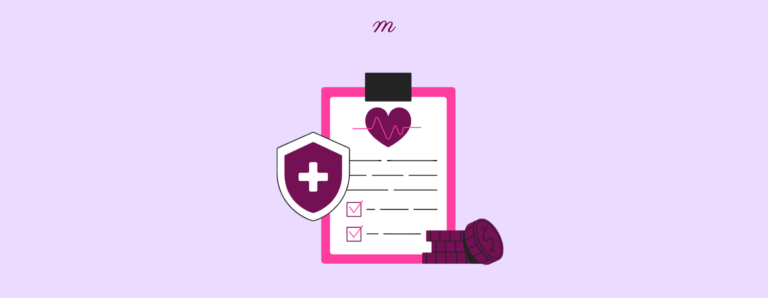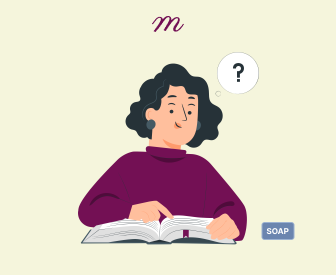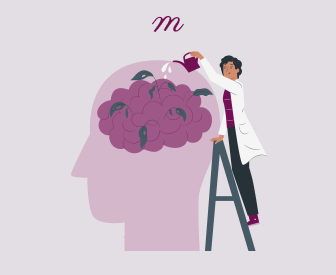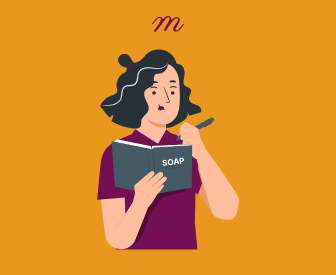Have your progress notes written for you automatically
Mental health professionals such as psychiatrists, psychologists, social workers, marriage and family therapists, and licensed professional counselors receive different training in their unique approaches to providing mental health care. However, they share a few things in common: the need for client charts with thorough clinical documentation and the mandate to keep client information and services confidential.
Note-taking is vital in mental health care, enabling professionals to uniformly document and organize their observations, assessments, and interventions. These records are crucial in providing effective treatment plans, facilitating communication among healthcare professionals involved with the case, and ensuring continuity of care. However, the specific practices and formats employed in clinical documentation are as varied as the training approaches among these clinical providers.
This blog post will explore the differences in note-taking among the different types of mental health professionals. We will explore each field’s unique requirements and note-taking styles, including the GIRP, DAP, and SOAP progress note formats. Furthermore, we will highlight clinical documentation best practices for all mental health professionals.
Psychiatrists
Psychiatrists are medical doctors specializing in the diagnosis and treatment of mental illness. Note-taking is an integral part of psychiatry, enabling psychiatrists to have a written record of and track patients’ mental health symptoms, treatment plans, and progress or lack thereof.
Purpose of Psychiatrists’ Notes
A psychiatrist’s note serves multiple purposes within the scope of mental health care. An initial meeting with a psychiatrist typically involves an hour-long meeting called a medication evaluation that results in a comprehensive written assessment. This document is similar to a therapist’s biopsychosocial assessment but also includes diving deeper into medical history, current health problems, and medication-related issues. The evaluation typically consists of a mental status exam, documentation on how a diagnosis was determined, and a written treatment plan and recommendations, including referrals for lab work, prescriptions written, and recommendations for psychotherapy. This evaluation is critical because it documents the client’s baseline symptoms before starting medication, making it easier to track progress and convey this information to future providers.
When a patient moves into the medication management phase of psychiatric treatment, sessions typically become shorter, and correspondingly, so does the clinical documentation for each appointment. Psychiatrists use their notes to track the progress of their patients over time. This includes recording changes in symptoms, medication response, therapy outcomes, any modifications to the treatment plan, and the rationale for these changes.
Psychiatrist Note-Taking Styles and Common Formats Used
Psychiatrists’ notes facilitate effective communication among busy healthcare professionals involved in a patient’s care. This includes collaborating with therapists, social workers, and other healthcare providers to ensure coordinated and comprehensive treatment. If a psychiatrist chooses to use abbreviations to save time writing medication management notes, they must use standard abbreviations in the mental health care industry. To avoid unnecessary confusion around abbreviations, using other time-saving note-writing tools, such as Mentalyc, is wise to support the clinical documentation process.
Mentalyc supports many formats for note writing. For example, a psychiatrist may write their assessment and medication management notes using a narrative form, a more free-style approach written in paragraphs. An example of this style can be found here. However, a more structured note format, which is also supported by Mentalyc, helps providers ensure they can track essential parts of the session. Because of this, many psychiatrists choose to use the SOAP (Subjective, Objective, Assessment, and Plan) format for documentation. Here’s a breakdown of the SOAP format as applied to psychiatry:
Subjective Includes the patient’s self-reported experiences, feelings, and concerns. It captures the client’s subjective perception of their mental health and any recent changes or challenges.
Objective Documents the psychiatrist’s observations, assessments, and any relevant object data, which may come from physical examinations, outcome measures, or collateral information from a patient’s family member or healthcare provider.
Assessment Analyzes the subjective and objective information to formulate or re-evaluate the diagnosis. It may also involve a discussion of the patient’s response to previous treatments or interventions.
Plan Outlines the treatment plan, including medication adjustments, therapy recommendations, referrals to other specialists or lab work, and any necessary follow-up appointments.
Social Workers in Hospital Settings
In hospital settings, the role of social workers is critical in providing holistic care to patients. Social workers address patients’ emotional and psychosocial needs and play a crucial role in advocating for their overall well-being. Effective clinical documentation is essential to a hospital social worker’s responsibilities.
Purpose of Hospital Social Worker Notes
There are many purposes to a hospital social worker’s clinical notes. This documentation facilitates collaboration among healthcare professionals, contributes to improved patient outcomes, and ensures continuity of care post-discharge. Other vital roles of the hospital social worker documentation include:
- Comprehensive Patient Assessment.
Social workers conduct thorough biopsychosocial assessments to identify not only the patient’s psychosocial needs, mental health struggles, and needed resources and referrals but also support systems, strengths, and potential barriers to care. Thorough assessment helps a hospital social worker develop appropriate care plans and recommendations tailored to the patient’s unique circumstances.
- Legal and Ethical Considerations.
Accurate and detailed documentation provides an essential layer of protection for a hospital social worker as many of the cases a hospital social worker engages with include safety issues and risk, not to mention ethical dilemmas that arise. Documentation also ensures adherence to regulatory and compliance requirements in the hospital setting.
- Treatment Planning and Intervention.
Social workers collaborate with interdisciplinary teams to design treatment plans that address the patient’s psychosocial needs. Clinical documentation serves as the roadmap for implementing this plan, monitoring progress, and evaluating the effectiveness of interventions over time.
- Communication and Collaboration.
Hospital social worker notes facilitate effective communication among healthcare professionals involved in a patient’s care. This is vital for collaboration among interdisciplinary teams during a hospital stay and to relay information post-discharge to care providers enhancing continuity of care during this pivotal period.
Hospital Social Worker Note-Taking Styles and Common Formats Used
Hospital social workers must adhere to their employer’s guidelines around clinical documentation requirements, including the format used and the electronic health record program to write on. Often, these organizational standards have hospital social workers document in ways similar to psychiatrists for uniformity. One common format used is the narrative format, which involves writing in paragraph form to provide a detailed account of the social worker’s interactions with the patient, including assessments, interventions, and observations. Another standard format in hospital settings is the SOAP note.
In addition to progress notes, the Discharge Summary is one of the most essential pieces of hospital documentation. This form aids the continuity of care between providers in different healthcare settings and includes written instructions to patients for following up on recommendations and referrals.
Psychotherapy Notes with Marriage and Family Therapists, Psychologists, Social Workers, and Licensed Professional Counselors
There are many paths to becoming a therapist, including marriage and family therapy, psychology, licensed professional counseling, and social work. Along each route lies the need to provide clients comprehensive care that includes well-written clinical documentation.
Purpose of Psychotherapy Notes
Psychotherapy notes are detailed accounts of therapists’ observations, thoughts, and interventions during a therapy session. Taken together, the notes should read like a storybook, telling the tale of the client’s time, life events, and progress experienced during the course of treatment.
As with other forms of clinical documentation created by different mental health care professionals, progress notes from therapy serve several purposes, including enhancing continuity of care, helping therapists maintain consistency in their treatment, treatment planning and evaluation, and legal and ethical protection.
Note-Taking Styles and Common Formats Used in Therapy Notes
So much information comes up during a therapy session. It can be difficult for a therapist to determine what information to include in the corresponding note. When psychotherapists use standard progress note formats, they decrease the likelihood of leaving out vital information.
Common progress note formats include the previously mentioned SOAP and DAP (Data, Assessment, and Plan) notes. DAP notes are similar to the SOAP format but focus more on the therapist’s analysis and treatment plan. The data section includes objective information gathered during the session, while the assessment section comprises the therapist’s professional evaluation and interpretations. Finally, the plan section outlines the strategies and goals for future sessions.
Another standard progress note format is GIRP (Goals, Intervention, Response, and Plan) notes. In this format, therapists document the following:
Goals The client’s specific goals and measurable objectives are recorded, including progress reported that week.
Intervention This section outlines the therapeutic techniques, exercises, or strategies employed during the session.
Response Documents the client’s reactions and response to interventions, life events, or challenges encountered.
Plan Outlines the next steps and any adjustments to the treatment plan.
The GIRP format is particularly well-suited for cognitive-behavioral therapy and other goal-oriented approaches.
Mental Health Documentation Best Practices
Aside from most mental health professionals not particularly enjoying their time spent on clinical documentation, there are other considerations they all share.
- Documenting Safety Issues. Safety issues, such as child or dependent abuse, self-injurious behavior, or suicidal or homicidal ideation, must be written in more detail than might otherwise be found in a clinical note. Thorough assessment and documentation of interactions, consultations, and decision-making processes provide some legal protection for the provider around these issues.
- Timeliness. The sooner a note can get written after a patient-provider interaction, the better. Writing a more comprehensive note about the service is more accessible when the memory is fresher. Balancing the demands of an intensive caseload and creating well-written documentation is a struggle for mental health care providers everywhere. Mentalyc is available for all mental health professionals to use. The HIPAA-compliant software uses artificial intelligence to save providers time and ensure an objective, well-written note.
- Confidentiality. All mental health providers must be mindful to keep their clinical documentation in secure places and in accordance with HIPAA requirements. Additionally, providers must not share patient records, including with other healthcare providers or family members, without having written consent or under the order of a legal subpoena.
Closing Thoughts on Note-Taking Differences & Similarities of Mental Health Care Disciplines
In conclusion, note-taking practices among mental health care providers vary depending on their specific roles and training. Psychologists, psychiatrists, counselors, social workers, and marriage and family therapists employ various formats suited to their unique needs and approaches. By understanding the differences in note-taking practices for each type of mental health care provider, we can appreciate the importance of accurate documentation, including how these disciplines work interdependently to ensure patient care coordination. While the specific formats and approaches may differ, all mental health care providers share the goal of providing effective and comprehensive care to their clients, including quality clinical documentation.











